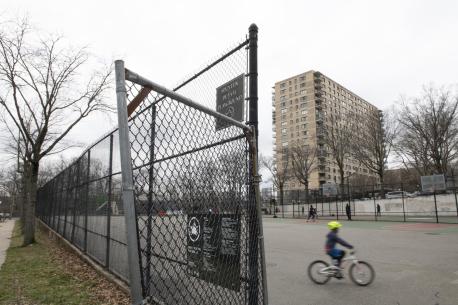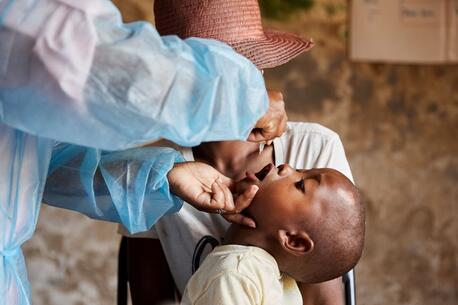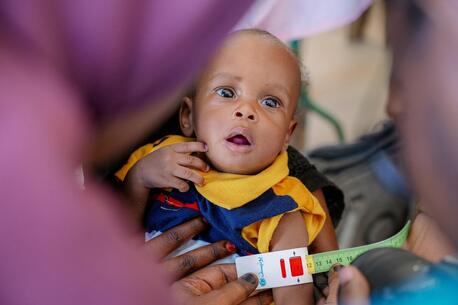
Advocating for Children and Families During the COVID-19 Outbreak
Passing the Families First Coronavirus Response Act and further action needed.
UNICEF USA applauds the passage of the Families First Coronavirus Response Act (FFCRA) as an important first step in supporting children and families in the U.S. and the economy in the face of the unprecedented COVID-19 pandemic. Notably, the Families First Coronavirus Response Act included:
- Increased funding for nutrition initiatives such as the Special Supplemental Nutrition Program for Women, Infants and Children (WIC) and the Supplemental Nutrition Assistance Program (SNAP) to fight food insecurity as families face loss of income and children lose access to free or reduced-price school meals;
- Two weeks of paid sick leave and up to three months of family and medical leave for eligible workers, allowing parents to stay home if they are sick or need to care for family, including children whose schools or child-care programs have closed; and
- Ensuring free coronavirus testing for everyone who needs a test, including the uninsured, and increased funding to Medicaid, which provides health insurance for children in low-income households.
We echo the calls of partners such as Zero to Three in the need for additional legislative solutions to support struggling families, including parents who may now be unemployed and children who may have already begun to face increased levels of food and housing insecurity, disrupted education, mental health challenges and other hardships.
In line with UNICEF’s family friendly policies agenda, we look to federal lawmakers to:
- Bolster funding for the childcare system: While some providers are closing, others are staying open in light of the childcare needs of health care workers, first responders and other essential workers. For parents and caregivers who have no choice but to continue working, childcare is a lifeline.
- Guarantee paid family leave for all: While commendable, the FFCRA only provides paid sick days and paid family leave to those employed by organizations with fewer than 500 employees. Businesses with under 50 employees may also be exempted. No one should be forced to risk the health and care of themselves or their family in the face of COVID-19.
- Address remaining food insecurity: 11 million children in the U.S. face hunger on a regular basis. During these unparalleled times, all efforts should be made to enable all children and families in need to access SNAP, food banks and other assistance programs at the local, state and federal level.
Additionally, UNICEF USA stands in full support of:
- Ensuring all families can safely access COVID-19 testing and health services, regardless of immigration status: U.S. Immigration and Customs Enforcement has issued a statement indicating that it will suspend enforcement operations at or near health care facilities.
- Taking measures to bridge the “homework gap”: According to the Pew Research Center, 15% of U.S. households with school-age children lack high-speed internet connections. As schools close across the country, it’s important that students — particularly those most disadvantaged — have access to the internet and digital tools for the continuity of their learning.
As UNICEF works to address the effects of COVID-19 on children and families at a global level, UNICEF USA stands ready to support Americans. Together, we can work to ensure every child has the ability to stay safe and healthy and have access to quality education and social services.
Support continued learning for children in the U.S. during the COVID-119 pandemic.
Top photo: On March 17, 2020, a child rides a bike through an empty playground outside Public School 24 in the Riverdale neighborhood of the Bronx, New York City, during the coronavirus pandemic. © UNICEF/UNI312291/Markisz
HOW TO HELP
There are many ways to make a difference
War, famine, poverty, natural disasters — threats to the world's children keep coming. But UNICEF won't stop working to keep children healthy and safe.
UNICEF works in over 190 countries and territories — more places than any other children's organization. UNICEF has the world's largest humanitarian warehouse and, when disaster strikes, can get supplies almost anywhere within 72 hours. Constantly innovating, always advocating for a better world for children, UNICEF works to ensure that every child can grow up healthy, educated, protected and respected.
Would you like to help give all children the opportunity to reach their full potential? There are many ways to get involved.





